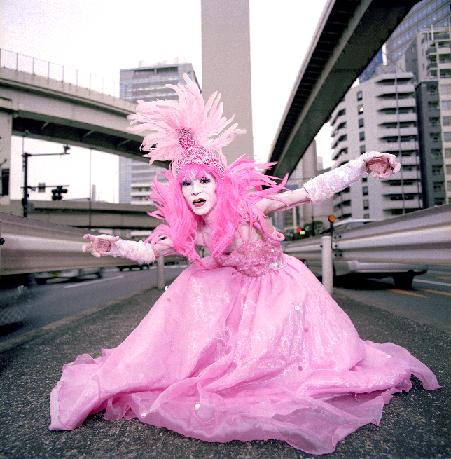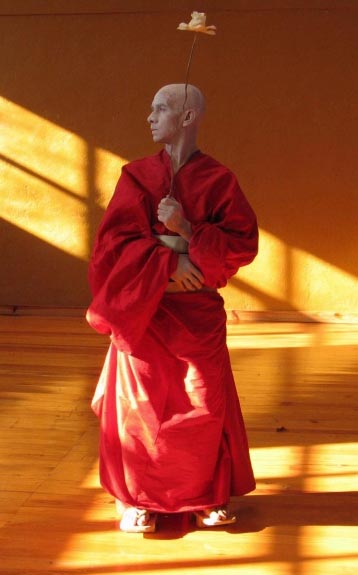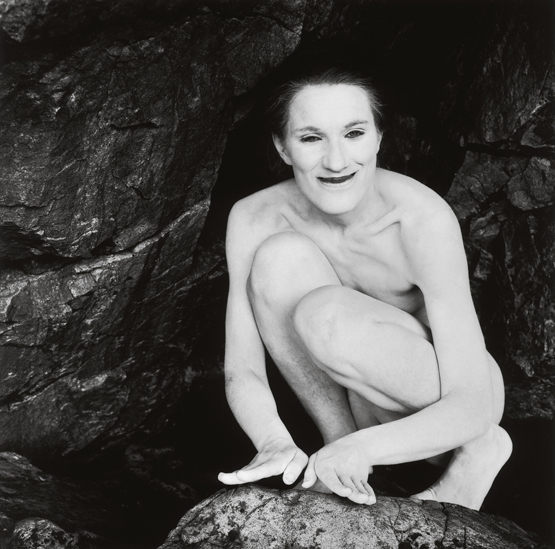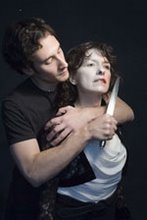Something is rotten in Denmark. Old Hamlet’s putrid flesh decomposes but will not surrender its ghost. Manifold earth would take the decomposing flesh as its own, but the flesh cannot surrender its elemental nature until the usurped monarchy is brought back into the natural order of the universe.
Old Hamlet rises as a frightful Frankenstein of disparate elements out of the bowels of the putrefied kingdom. As sovereign king on earth he summons all of nature to the place of his murder, the site where the natural order was usurped. At this Orchard of Crime, all flora and fauna begin to misbehave. Half-ripened fruit falls prematurely to the ground, fermenting into a stew of alcohol on which the bionetwork will feed. All of the court and Denmark will become drunk with the poison of the crime, but none so much as the son Hamlet, flesh of the flesh of the disintegrating realm.
Flesh in this usurped kingdom and unnatural world is no longer subservient. Old Hamlet/Claudius are the same flesh and blood. The kingdom is now ruled by the gangrene of this dual King, who is both living and dead. This dead and dying flesh must be amputated, purged and burnt away. The elements Fire, Earth, Air, Water convene to contain this rebellion of unholy flesh.
I am thy father's spirit, doomed for a time
To walk the night, and all the day
Confined in flaming fire,
Till the foul crimes done in my days of Nature
Are purged and burnt away
kasai
But the rebellious flesh will not surrender dominion over earth. The diseased family unit is the unholy trinity at the core of the kingdom. The Father, Son, and Unholy Ghost. Gertred animates not so much the dead king as the dead and dying gangrened flesh of the First Family.
The earth in the Orchard is moist, almost alive in the fermentation of the fallen, decaying fruit. Flesh would differentiate itself from the other elements. Wind/Air is breath. Rain/Water is saliva. Earth amalgamated with muddy flesh of fallen fruit. The moldering rot gathers its body together.
The body of many rises from the ground. The eyes look backward into the hollow head in an attempt to see the tail being pulled from the earth. Wind enters through the anus, swirls in the stomach, up through the throat, but cannot escape the mouth, returning back through the body. Moist humid air enters the mouth to become saliva. This water and air would gather into Fighting Words. This body cannot speak yet but may be able to Spit Nails in its anger.
Who has better teeth
The blood or the stone












